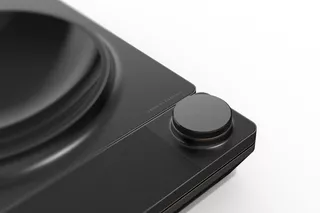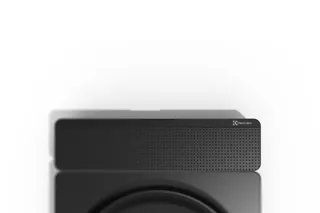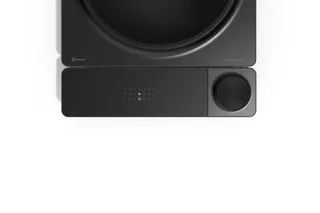HfG Projects “forestsense” and Electrolux Jordana” awarded with UX Design Awards
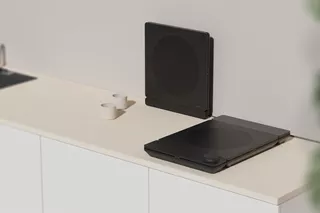
University of Applied Sciences Schwäbisch Gmünd (HfG) and one of its students stood out on two occasions at this year’s spring international UX Design Awards. For his individual design project “forestsense,” HfG student Niklas Muhs was awarded the “UX Design Award I Gold” in the category of “New Talent”. In the latter category, and in an exchange semster project at the Swedish Umeå Institute of Design, Niklas and his project partners Luisa Ebeling, Indalecio Gaytan and Yash Saboo won the “UX Design Award” for their project “Electrolux Jordana”.
“forestsense” by Niklas Muhs, developed in the HfG study program of product design and supervised by Andreas Hess, is a software tool with an interface function for data capture and data usage in the forest industry. For this purpose, Niklas created a sensor platform generating a digital image of woodlands through three-dimensional data and color values. Additional spectral sensors enable the user to timely recognize the stock of diseased trees. The platform is thus designed to create a traceable and comprehensible link between forests and digital surfaces. Using this a base, it will be possible to assess and evaluate the acquired data in order to take respective measures for the cause of a sustainably-driven forestry.
“ „forestsense“ convinced the jury with its holistic solution approach. The design of the hardware reaches a technically almost feasible concept level. The hardware seamlessly connects to a well-designed software application, which is rounded off by a professionally crafted user interface. „forestsense“ is the result of detailed field studies and integrates very well into the daily workflow of foresters. This elaborate concept offers an excellent solution for the protection of the world’s forests, which are an important factor in the global fight against climate change,“ the UX Design Award jury stressed.
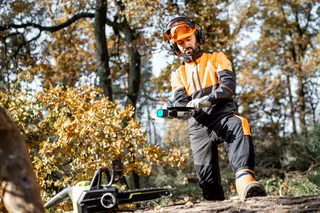
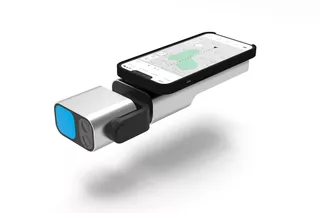
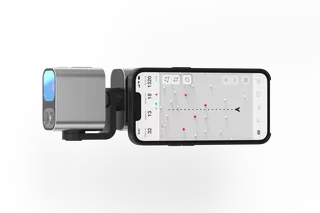
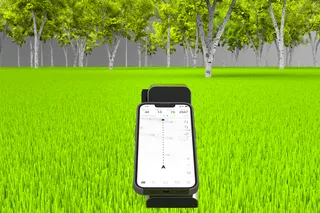
UX Design Award for “Electrolux Jodana” project
The topic of sustainability was also at the very center of another HfG project awarded with the UX Design Award by Niklas Muhs, this time during his exchange semester at the Swedish Umeå Institute of Design, one of the many international HfG partner schools. “Electrolux Jodana,” developed by HfG student Niklas Muhs together with Luisa Eberling, Indalecio Gaytan, and Yash Saboo is a sustainable and individual ecosystem for cooking through which the consumption of short-lived products can be reduced.
Given the sociopolitical background: In many countries, people, for the improvement of their financial status, are forced to leave their home and their families. As a consequence, they automatically use more household devices, leading to much more electronic waste annually. “Electrolux Jodana” and its respective cooking equipment wants to counter this process through versatile application options and individual user customization. Thus, the project addresses two aspects: on the one hand, it wants to foster and strengthen a common family feeling despite spatial separation at home or abroad, on the other hand, it aims at reducing the use of non-durable products and minimizing electronic waste in general.
Or as the UX Design Award jury coined it: „This well-designed concept offers a product unlike anything currently available on the market. The self-explanatory user interface is reduced to a minimum, but clearly communicates the functions of heat regulation, weight measurement and timer. The idea of creating a small community to keep in touch with family or friends through an abstract way of interactive cooking is charming and a novel idea. Modularity is the future, and this concept could prove itself in all markets, including dormitories and community spaces, extending its lifespan as a growing system.“
The UX Design Awards
The UX Design Awards are hosted by the International Design Center Berlin (IDZ) and honor the role of outstanding User-Experience-Design (UX) for the design of a positive living environment for the public good. Founded in 2008 as an exhibition foor good usability, the IDZ established the UX Design Awards in 2015. Since then and twice a year, the awards distinguish the worldwide best design experiences. The competition is open for both products, services, environments, concepts, visions, and Master and Bachelor theses from all over the world. In spring 2023, and in the context of a total of 400 submissions in five categories (Public Choice, Product, Concept, Vision, New Talent), 91 projects had been nominated with 16 international projects being finally awarded with the UX Design Award.


